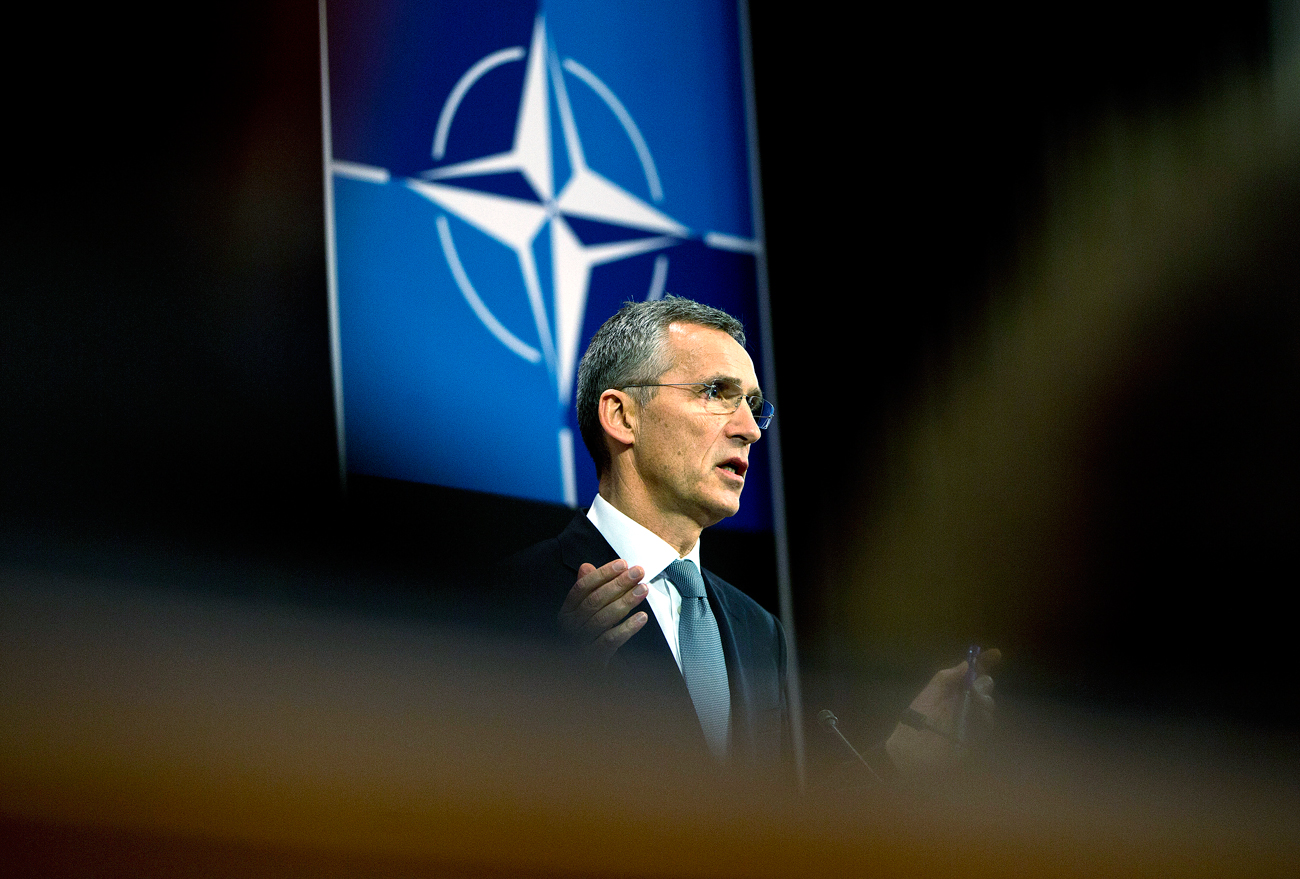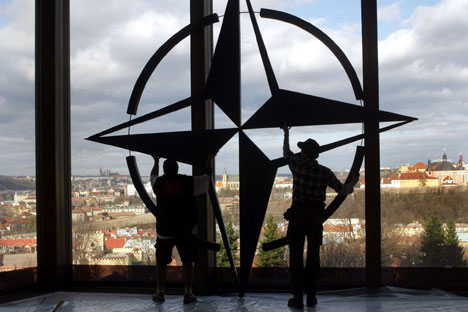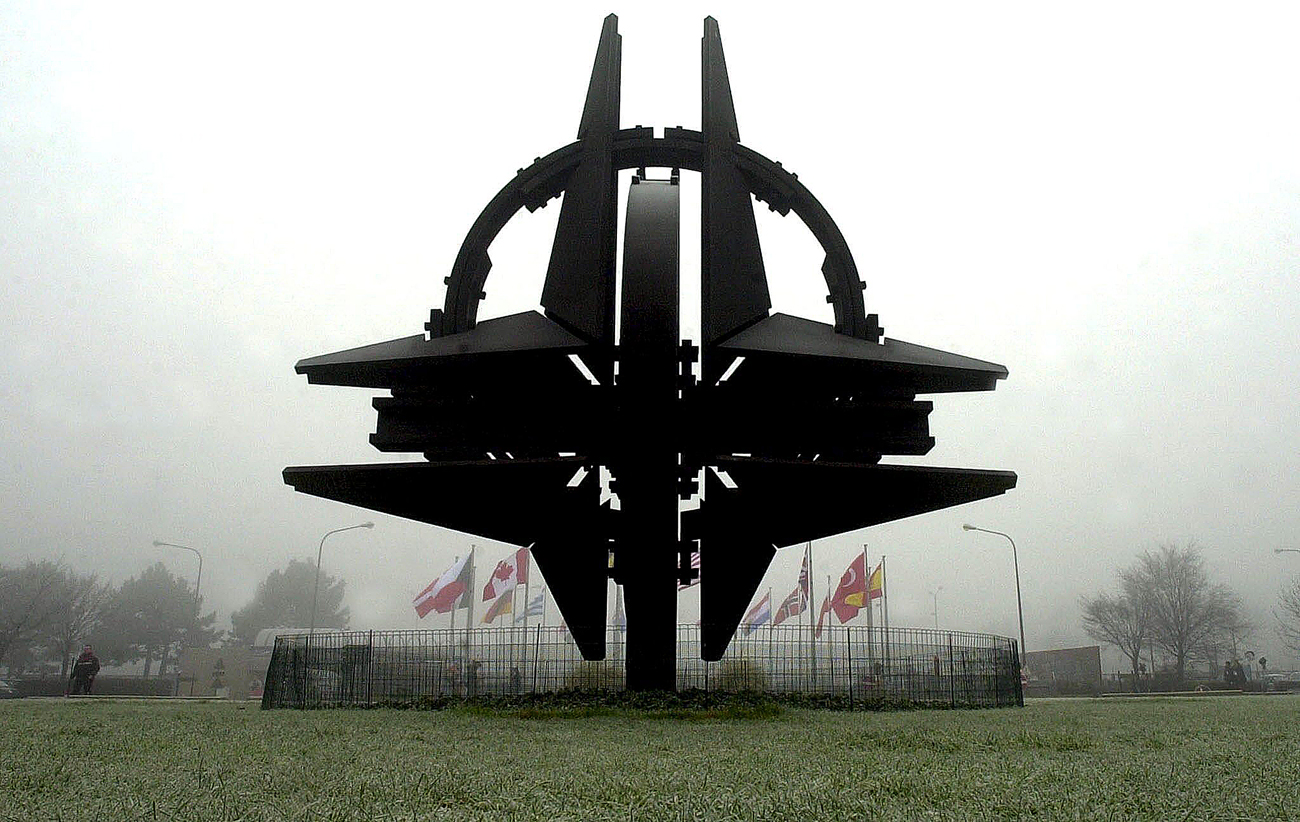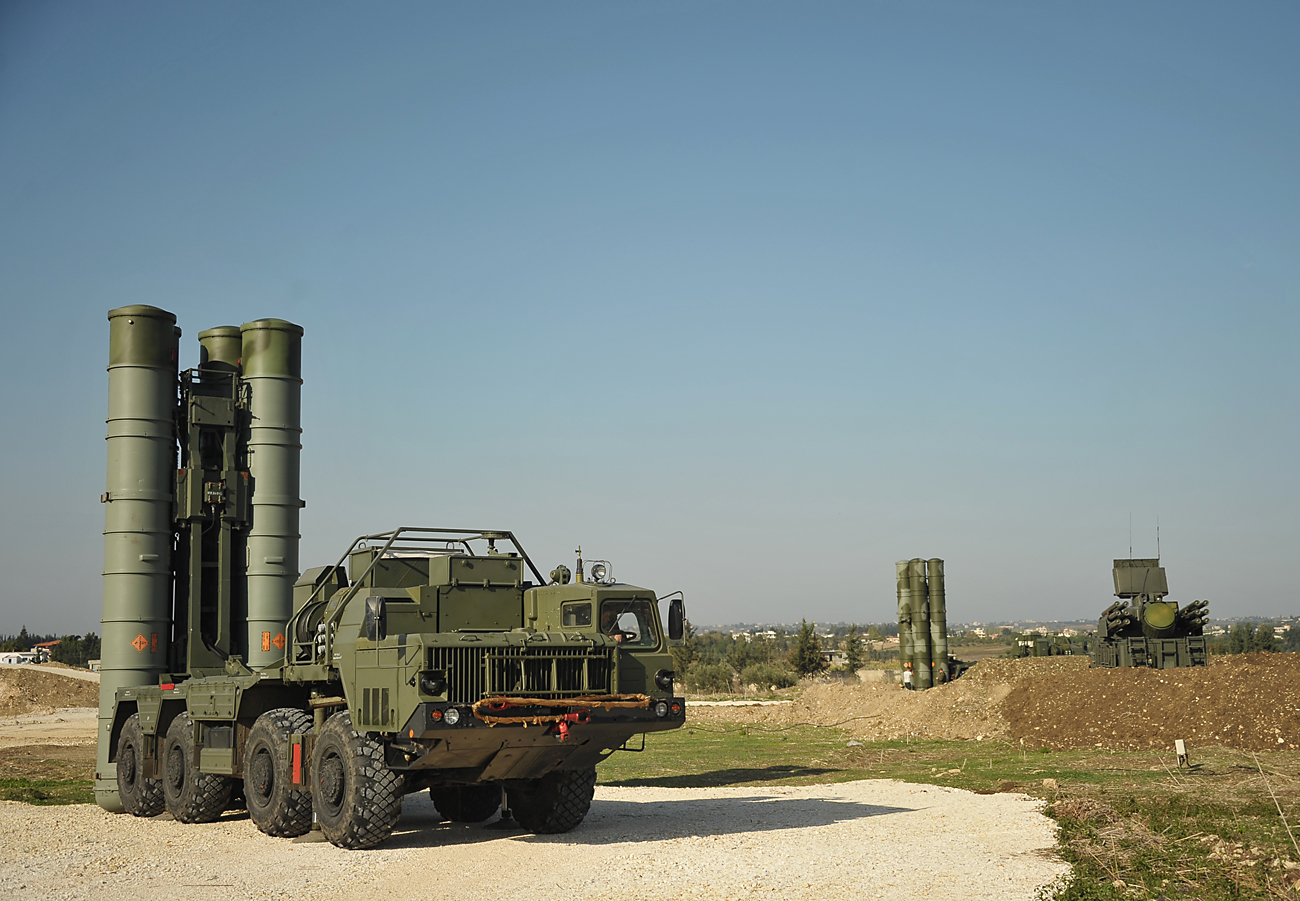NATO chief: We do not want to isolate Russia

NATO Secretary General Jens Stoltenberg addresses a news conference after a meeting of the NATO-Ukraine Commission at foreign ministers level at NATO headquarters in Brussels.
APNATO Secretary General Jens Stoltenberg has stressed at a summit in Brussels that the alliance has no intention of isolating Russia and that its policy toward Moscow will be that of “dialogue and defense.”
At the Dec. 7 meeting in the Belgian capital, the NATO leadership and foreign ministers signed 42 documents aimed at expanding cooperation in various fields, including cybersecurity and counteracting “hybrid” threats.
Developing an effective strategy to deal with Moscow's foreign policy was among the key issues discussed at the summit.
NATO's position
"Russia is our biggest neighbor, Russia is here to stay and there is no way we want to or should try to isolate Russia," Stoltenberg said following the meeting of the NATO-Ukraine Commission at the level of Foreign Ministers. "We need to engage with Russia in many different ways not only as NATO, but on the level of different NATO allies as well," he said.
Stoltenberg believes, however, that the sanctions against Russia should be prolonged. According to him, four additional battalions, each comprising 800 to 1,200 troops, will be deployed in the Baltic states and Poland for the purpose of defending Europe and NATO member nations. Additionally, the U.S. has decided to quadruple the funding of its military presence in Europe.
The NATO chief noted that the alliance does not see any security threats coming from Russia, but that it is worried by the fact that Russia is building up its military forces in the west of the country.
“We do not want confrontation, we want to alleviate the tensions,” Stoltenberg said (in Russian) in an interview with the Russian business daily Kommersant when asked if NATO perceived Russia as its primary threat.
Russia's position
According to Alexander Grushko, Russia's permanent representative to NATO, Moscow has not witnessed any changes in NATO's position, nor any desire by the alliance to revise its relations with Russia.
“The situation continues to deteriorate; in particular, new small headquarters are being set up, and there is constant talk of the need to increase NATO's Black Sea presence. In the final analysis, all this contradicts Europe's actual security needs,” Grushko told Russian journalists in Brussels after the summit, as reported (in Russian) by the TASS news agency.
According to the diplomat, the NATO leadership's “dual approach,” which combines dialogue with a policy of deterrence, is imposing a new cold war on Russia.
“It is obvious today that NATO links its future to defending itself from a major enemy. This is prompting the alliance to stir up the Russian threat,” said Grushko. “However, it is absolutely clear that Russia does not harbor any aggressive plans with regard to NATO, this would be on the wrong side of common sense.”
What can Russia expect from NATO and the new U.S. president?
Following Donald Trump’s election as the next U.S. president, Russian society is under the impression that relations with the West might now improve. Some Russian experts, however, warn that it is too early to expect this.
“Russia should avoid what I call the Dostoyevsky pendulum: oscillating from utter despair to complete euphoria, which has grown particularly strong in the past month, following Trump's election and the results of the elections in several European countries,” Viktor Mizin, a professor at Moscow State Institute of International Relations and deputy director of the Institute for Strategic Assessments, told RBTH. “There is nothing for us to be holding our breath for.”
Valery Garbuzov, director of the Institute for U.S. and Canadian Studies in Moscow, believes the future of Russian-NATO relations will become clear by February 2017.
“It is not just Moscow that wishes for an improvement in the relationship with NATO but also a number of NATO member nations,” said Garbuzov. “We may expect both sides to engage in more productive work, especially if the NATO-Russia council convenes for a meeting at the end of 2016, which might identify further avenues of cooperation.”
Mizin believes the ruling political class in the Western countries has not changed its position and continues to perceive Russia as a problem, not an ally.
“The establishment will not let Trump seek rapprochement with Russia,” he said. “NATO will remain true to itself: It will continue with the past several years' policy of deterrence as applied to Moscow, and will keep making statements to the effect that the Kremlin is working to develop a 'hybrid war' strategy.”
Progress on avoiding military incidents
On the other hand, added Mizin, Russia and NATO do have an opportunity to prevent maritime and aerial incidents by agreeing on the use of transponders by military aircraft. The issue is currently being negotiated by the Russian representative to NATO and the alliance's deputy secretary general.
“The number of maritime and aerial incidents has been growing over the past few years,” said Mizin. “We all remember how Turkish fighters shot down a Russian Sukhoi Su-24 bomber in late 2015. The main objective now is to prevent such tragedies happening in the future.”
Read more: Poles apart: Can the divisions between Russia and the West be bridged?>>>
Subscribe to get the hand picked best stories every week
All rights reserved by Rossiyskaya Gazeta.
Subscribe
to our newsletter!
Get the week's best stories straight to your inbox


